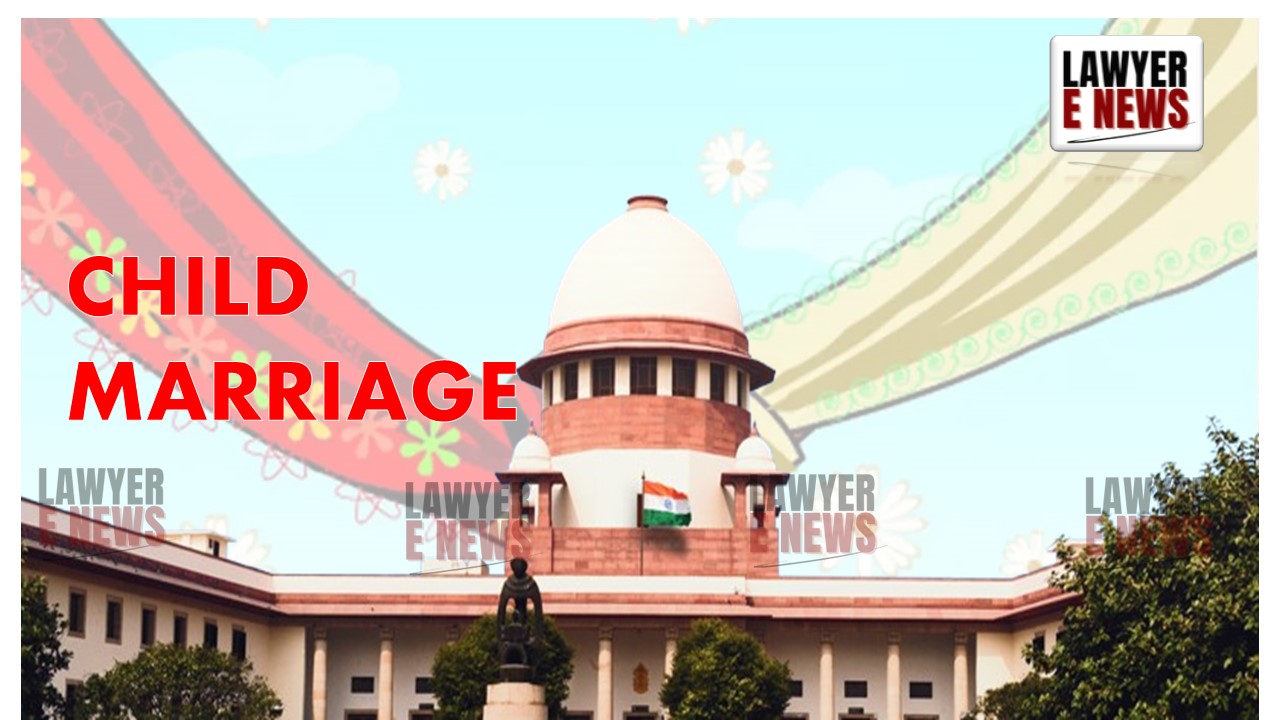-
by Admin
15 February 2026 5:35 AM



“Comprehensive sexuality education is key to empowering children and preventing child marriages.” - Supreme Court. In its judgment on October 18, 2024, in the case of Society for Enlightenment and Voluntary Action & Anr. v. Union of India & Ors., the Supreme Court of India underscored the need for integrating comprehensive sexuality education into school curricula as a crucial step in preventing child marriages. The Court directed all States and Union Territories (UTs) to implement education programs that inform children about their rights, reproductive health, and the social and legal consequences of child marriage.
"Education must empower children with the knowledge to resist harmful practices like child marriage."
The Supreme Court mandated that comprehensive sexuality education (CSE) must be introduced in schools across the country, in line with international guidelines such as those from the World Health Organization (WHO). This education should cover reproductive rights, gender equality, the legal aspects of marriage, and the physical and psychological consequences of early marriages. The Court stressed that age-appropriate, culturally sensitive content should be developed to ensure students fully understand their rights and the importance of delaying marriage until adulthood.
The Role of Education in Preventing Child Marriages:
The Court highlighted that many children, particularly girls, are unaware of their legal rights and the long-term consequences of early marriage. Comprehensive sexuality education will provide them with the tools to make informed decisions about their future, including understanding the risks of early marriage on health, education, and personal development. By integrating this education into the school system, the Court aims to empower young girls and boys to resist societal pressures and advocate for their rights.
Addressing Gender Inequality Through Education:
The Supreme Court emphasized that education is not merely a preventive tool but a transformative one. By teaching children about gender equality, personal autonomy, and reproductive health, comprehensive sexuality education challenges the traditional norms that perpetuate gender-based discrimination and the subjugation of women through child marriage.
"Education is a vital tool to break the cycle of child marriage and empower young girls to reclaim their future."
The Supreme Court's directive to incorporate comprehensive sexuality education into school curricula marks a significant step in tackling the root causes of child marriage. By focusing on education and awareness, the Court aims to ensure that future generations are better equipped to resist early marriage and protect their rights to education, health, and personal autonomy.
Date of Decision:October 18, 2024.
Society for Enlightenment and Voluntary Action & Anr. v. Union of India & Ors.
